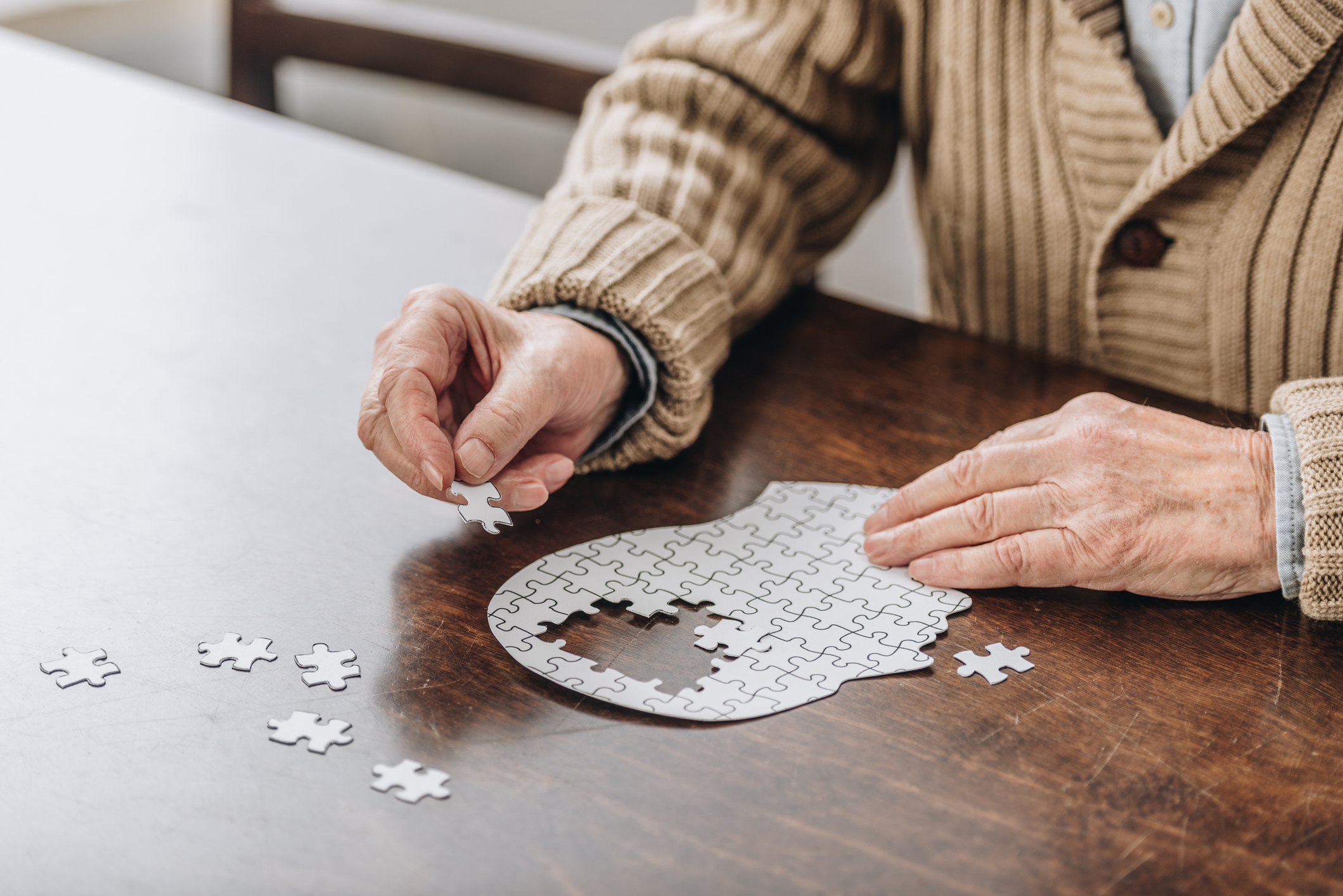The Types, Signs, and Stages of Dementia
Dementia is an umbrella term used to describe cognitive impairment that’s severe enough to impact daily life. There are several conditions considered types of dementia, making it difficult to determine what might be causing a loved one’s memory, behavior, and social changes. How to support a loved one with dementia?
Adding to that complexity is the fact that there are normal brain changes that occur over the years. You might notice that your senior loved one has difficulties with problem-solving, fewer social interactions, or other developments. This may result from the early stages of a cognitive disorder – only a medical diagnosis can prove exactly what is happening in a person’s brain.
At Town Square at the Jersey Shore, we’re committed to offering seniors, particularly those with Alzheimer’s disease, dementia, or another memory disorder, the best in adult day care services with a unique focus on dementia care. Contact us today or see below to learn more.
How Biological, Psychological, and Social Aging Impact Seniors
Dementia is not an inevitable part of aging. But the brain itself does transform as we get older, which is why biological, psychological, and social changes occur later in life.
The human brain starts shrinking in our 30s and 40s, so by the time we’re in our 60s, brain volume has decreased by a clinically significant amount. The areas responsible for cognitive functioning – the frontal lobe and hippocampus – shrink more than other areas. There are also shifts in how neurotransmitters function, leading to potential “slowdown” of thought and recall even in healthy brains.
As a result of these biological changes to the brain, some degree of minor forgetfulness, decreased focus, and trouble with multitasking can be expected. There can also be psychological changes – for example, experiencing emotions differently.

All of these psychological changes and age-related cognitive changes also impact social interactions. Older adults might spend more time alone because their social networks are narrower, and sensory loss problems like weaker hearing and vision can make it harder to engage in the types of interactions they used to enjoy.
When changes like these have significant, consistent effects on the day-to-day life of an older loved one, it might be because they’re exhibiting the early warning signs of dementia.
What Are the Stages of Dementia?
Dementia progresses over time, and early detection and support is vital. As a person’s condition develops, the signs are more pronounced.
During the early stage, people can still live relatively independently. They have mild symptoms that are usually hard to notice. For example, they might miss appointments or forget to pay their bills but still act like themselves for the most part. How do I help my partner whose parent has dementia?
Psychologically and socially, you might notice a senior loved one having more anxiety and a loss of self-confidence around others.
Individuals at this stage benefit from assistance of the kind Town Square offers – if they regularly spend time in a socially engaging requirement, they can enjoy a better quality of life and stay as sharp as possible before their condition progresses.
During the middle stage, which lasts between two and four years on average, the symptoms of early-stage dementia progress.
Your loved one might have trouble recognizing family members and friends or keeping track of things like the time of day and when they should get dressed, eat meals, or go to bed. They may also believe in things that aren’t true or exhibit unreasonable suspicion towards others. Psychologically, they might act more agitated and have fewer inhibitions.
At this stage, individuals need help with personal care and daily living. They might struggle with language and only use a few words, if any at all, to communicate, making socialization extremely limited unless they receive expert help from dementia professionals. Many people at this stage experience physical difficulties such as swallowing disorders.
What Are the Types of Dementia?
Each type of dementia presents with slightly different symptoms and a different rate of condition progression. For example, Alzheimer’s often progresses more slowly than other types.
- Alzheimer’s disease is a brain disorder that usually impacts older adults. There are complex brain changes that are believed to be behind this disease, including loss of connections between nerve cells and the development of abnormal clumps and tangled bundles of fibers in the brain.
- Vascular dementia is the second most common type of dementia (after Alzheimer’s disease). It’s caused by impaired blood flow to the brain, which damages brain tissue.
- Lewy body dementia is caused by deposits in the brain of alpha-synuclein, which is a type of protein. These deposits are known as Lewy bodies. They impact chemicals in the brain, which causes changes to cognitive ability, mood, behavior, and movement.
- Parkinson’s dementia occurs in people who have been diagnosed with Parkinson’s disease for more than a year. The brain changes caused by Parkinson’s impact movement at first, but they can also affect mental functions leading to memory issues and difficulty with problem-solving. People with Parkinson’s dementia also have Lewy bodies in their brain – the same alpha-synuclein deposits found in those with Lewy body dementia.
- Unlike most of the other types of dementia, frontotemporal dementia mostly impacts those who are in middle age – starting between the ages of 40 and 65. People with this type of dementia might exhibit pronounced personality changes or lose their ability to use language because the areas of the brain responsible for personality, behavior, and language are affected.
- Huntington’s disease is a genetic disease that typically eventually results in dementia. It usually shows up in adults in their 30s and 40s but can be diagnosed in childhood.
- Creutzfeldt-Jakob disease is a rare, transmissible brain disorder caused by prions – infectious misfolded proteins. In the modern day, most people who have contracted CJD received a transplant (such as a corneal graft) containing prions. It can be mistaken for Alzheimer’s because the symptoms are similar. However, this form of dementia usually progresses more quickly than Alzheimer’s disease does.
- Mixed dementia refers to dementia caused by more than one cause. For example, someone might have vascular dementia and Lewy body dementia.
If you have a loved one with dementia, you’re not alone. Globally, there are more than 55 million people with dementia. What happens after being diagnosed with dementia?
Fortunately, there are many resources you can access to help your family members and to make this transition easier for you. One such resource is senior day care at Town Square. Our services are founded on the most beneficial ideas from reminiscence therapy and take place in our unique mid-century setting, which promotes engagement, learning, and healthy remembrance from the ground up – you have to see our center to believe it!
Beyond our excellent, reminiscence-focused adult day programs, we also offer many other forms of support for people living with a cognitive disorder and their families, including family caregiver dementia training, caregiver respite, regular support groups, and educational presentations on all aspects of dementia care.
Contact us today to learn more about how to pick an adult day care for someone with dementia.


